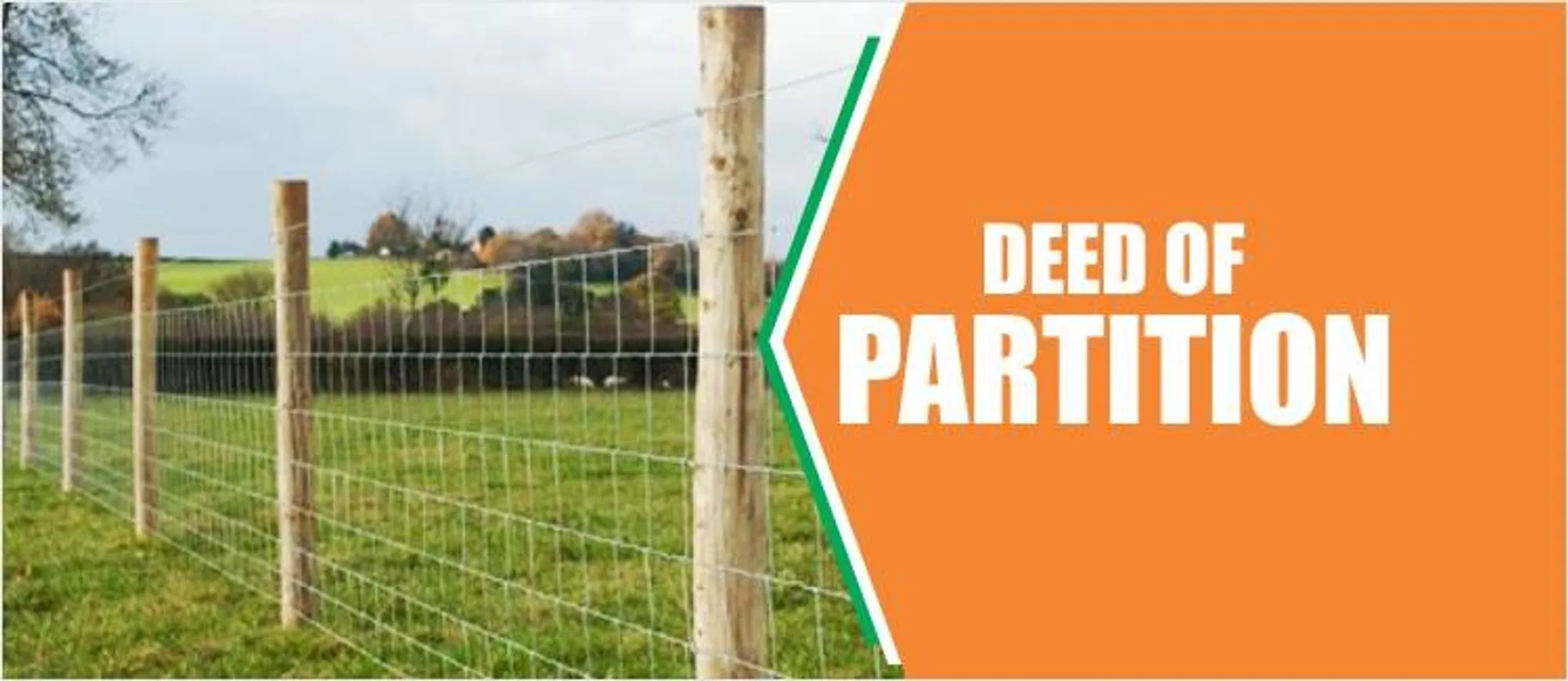Now-a-days everyone likes to be independent and take his/her own decisions especially in relation to what they own such as Property. Settlement of issues about a Partition of property that has been inherited or is jointly owned by two or more persons sometimes involve a lot of legal issues. The parties concerned find hard to complete these problems by themselves in the absence of expert guidance, examples, and legal help.
Therefore, a partition deed helps execute a smooth division of property.
Partition of Property effectively helps to protect the interests of the co-owners who own immovable assets and are entitled to undivided share each.After division, each person becomes the owner of his/her share and also needs to transfer as well as surrender the rights of the property. Each divided property gets a new title, and each shareholder gives up his interest in the property for other sharers. This helps avoid problems in transfer, taxation, inheritance and alienation.
The new shareholder is the independent owner and thus can dispose of the property at his/her free will. This means he/she can sell, gift, transfer, or exchange the property.
The Partition of the Property can be done in two ways –
Mutual Consent:
- When the division takes place with the agreement of the co-owners i.e. each party involved has no problem and wants the partition to take place; the co-owners execute a Deed of Partition.
- Irrespective of the fact that the estate is being divided between family members or business partners or friends or others, a Deed of Partition must be signed between the co-owners irrespective of the number of co-owners.
- The Partition Deed has to be registered at the office of the sub-registrar of the place where the property is situated. In such a case the stamp duty payable is 2% of the value of the property partitioned.
- The share of each owner depends on the amount of investment as in the purchase document or as per the law applicable. Hence it is not necessary that the proportion of all the owners will be equal.
- In case the share of investment is absent in the purchase document it is assumed as per the law that all the co-owners have an equal undivided share of interest, right, and title in the property.
Without Mutual Consent:
- In case all the parties involved do not agree, a partition suit is required to be filed in the appropriate court of law.
- In this case one must have the ownership papers, transfer papers and all other original documents to have an easy and smooth process.
- It is important that the partition deed is executed on a stamp paper and drafted in a clear and explicit manner i.e. the share of each person should be specified with their respective names.
- This deed should be recorded at the office of the sub-registrar to give it a legally binding effect.
- It should mention in particular the date from which the partition will be effective.
- A Partition Deed is a legally binding document which ensures that the partition of property takes place as per law.
- Therefore, execution of such a deed makes certain that each party involved gets his/her fair share.

